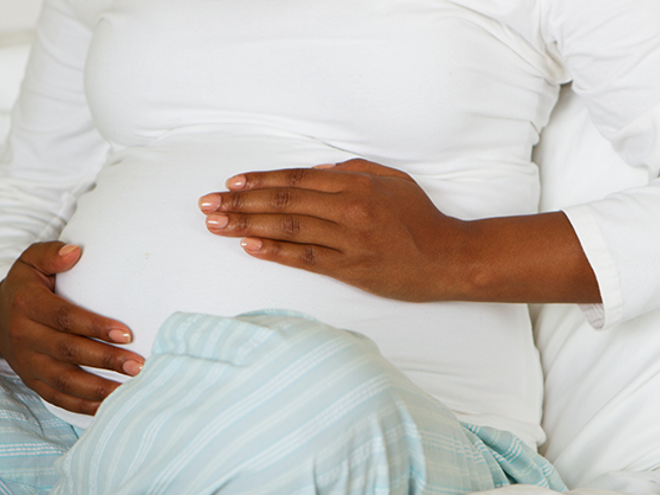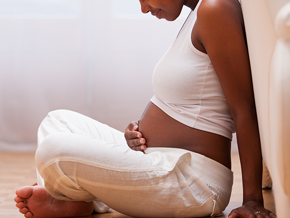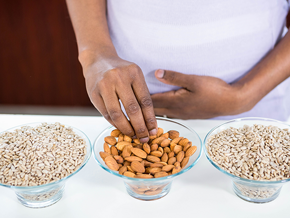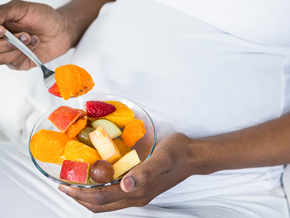
Week 37
Your baby tends to keep his head down, arms crossed, and legs folded up on his chest as there’s not much room to move around. He’ll be very glad to get out and stretch! Read more about this week.
BABY DEVELOPMENT
The little one in your belly isn’t quite so little anymore. With the lack of space, you’ll find he isn’t doing as many somersaults as before. Still, he continues to kick, elbow or move his head to show he’s still there. Feel free to poke gently back to say “hello, I’m here too.” The subcutaneous peach fuzz that was covering his skin, the lanugo, has come off while the waxy vernix begins to pull away and floats off into the amniotic fluid. Patience, he’s getting ready to meet you soon!
YOUR BODY
With a couple more weeks to go, you’re feeling both excited and apprehensive. Who wouldn’t be?!
Still, try to stay as relaxed as you can so you can give birth in optimal conditions. Keep doing your regular relaxation and breathing exercises. If you feel a wave of contractions, look calmly at your watch, lie down and relax, breathing deeply and regularly. The contractions will subside. When they come back, look at your watch again. If they are spaced more than 20 minutes apart, you’re not going into labour for now (in general, if the contractions are spaced 5 to 10 minutes apart, or if your water breaks, then it's time to go to the hospital). Can you believe how close you are to becoming a mum? Or, if this isn’t your first, to having another little one?! Delicious. Just take it easy, everything will be just fine. Trust us, we know these things.
NUTRITION
One of the most asked questions is whether you can drink coffee and tea or enjoy the occasional glass of wine when pregnant or breastfeeding. Some increased side effects are associated with high caffeine intake according to recent studies. Those results have led to moderate caffeine consumption by pregnant women and nursing mothers being okay’d: below 300 mg per day. Considering that we all metabolise caffeine differently, most experts recommend limiting it to about 2 cups of coffee or tea per day. As for alcohol, a glass once in a while when pregnant seems to be all right – but only once in a while! (PLEASE MAKE SURE WITH YOUR REGULATORY TEAM YOU CAN TALK ABOUT ALCOHOL) And it is recommended that breastfeeding mothers avoid it as it can affect milk production and change its flavour, which may reduce the volume of feedings.
TIPS
Have you been feeling a bit ambiguous about having your partner in the room during the baby’s birth? If you are unsure, then perhaps you can clear up a few things in your own mind before deciding how you want to play it. Do you feel more secure when your partner is nearby? Or would you have the feeling that you would have to pull yourself together? Perhaps it would be more relaxing to have a good friend at your side, one who is already a mother herself. Don’t forget the “other” perspective though: would your partner be able to endure being only being a spectator? Talk openly to your partner about expectations and fears. Then make a joint decision. Try not to put either yourself or your partner under pressure. This is meant to be joyful.




















